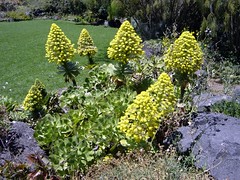 |
While going through my daily catch up of RSS newsfeeds I have bumped into one particular article over at CIO that I am sure plenty of folks over here would be very much interested in, specially if you are into Social Network Analysis. The article is titled Who Knows Whom, and Who Knows What? and you will be able to find it over here. The reason why I mentioned above that it is an interesting read is because of the fact that it will provide you with some very good examples of how SNA, when used and applied correctly and in a wise manner, can bring some incredible value to the overall Knowledge Management strategy that whatever company may have. I think I am going to leave it up to you to read further on how several companies have used SNA to their own advantage to become better with handling its knowledge and the different networks of knowledge workers, but I thought I would highlight in the mean time some interesting quotes that clearly state how there are folks out there who do get it, as far as Social Network Analysis is concerned: |
“Social network analysis provides a clear picture of the ways that far-flung employees and divisions are working together, and can help companies identify key experts in the organization. ”
Indeed, who would have thought, making use of SNA in order to be able to locate key subject matter experts within the organisation? Isn’t this one of the main issues that traditional KM has been struggling with for quite some time. Locating your experts is not an easy task and it looks like SNA could certainly help out here. Amongst many other areas.
“SNA isn’t a replacement for traditional KM tools such as knowledge databases or portals, but it can provide companies with a starting point or blueprint for how best to proceed with KM initiatives.”
This is certainly one of my favourite quotes from the entire article. Not only from the point of view where it just places SNA, quite nicely, in the overall KM strategy but also from the point of view to reply to all those folks who have been saying for quite some time how SNA could stand on its own, when we all know that it is actually not the case. SNA will provide you with the data, but you still need to figure out what you would want to do with it in the larger picture, which is the overall KM strategy that you may have in place.
“As a component to a larger KM strategy, however, SNA can help companies identify key leaders and then set up mechanisms—such as “communities of practice” or other groups—so that those leaders can pass on their knowledge to colleagues”
One of the many great advantages of conducting an SNA is the fact that as a result of it you would be able to help businesses identify those key subject matter experts who would eventually may venture into creating different communities of practice, for instance, about the topic(s) they are passionate about and as such you would be creating instantly a pool of expertise that would help you drive whatever your KM strategy may be. We all know that with all this buzz about social software there is an increasing interest in knowledge sharing and collaborating with other knowledge workers and as such those same communities would become the main engines that could help businesses transition from a labour-based model to an asset / knowledge based one. And all that thanks to a single SNA.
“SNA can be defined as “the mapping and measuring of relationships and flows between people, groups, organizations, computers, or other information- or knowledge-processing entities.“” by Valdis Krebs.
And, finally, here is perhaps one of the most effective definitions about SNA that you would find out there provided by Valdis Krebs. Simpler than that I doubt you would be able to state it.
As I have said, a very interesting article worth while reading and which will clearly open up people’s eyes about how SNA can be used in a wise manner to help improve the different connections between knowledge workers within whatever the company, like many of the examples state quite clearly throughout the article itself, in order to allow them to boost their knowledge sharing and collaboration with other knowledge workers.
Technorati Tags: Social Network Analysis, SNA, Knowledge Management, KM, Communities of Practice, Social Software, CIO